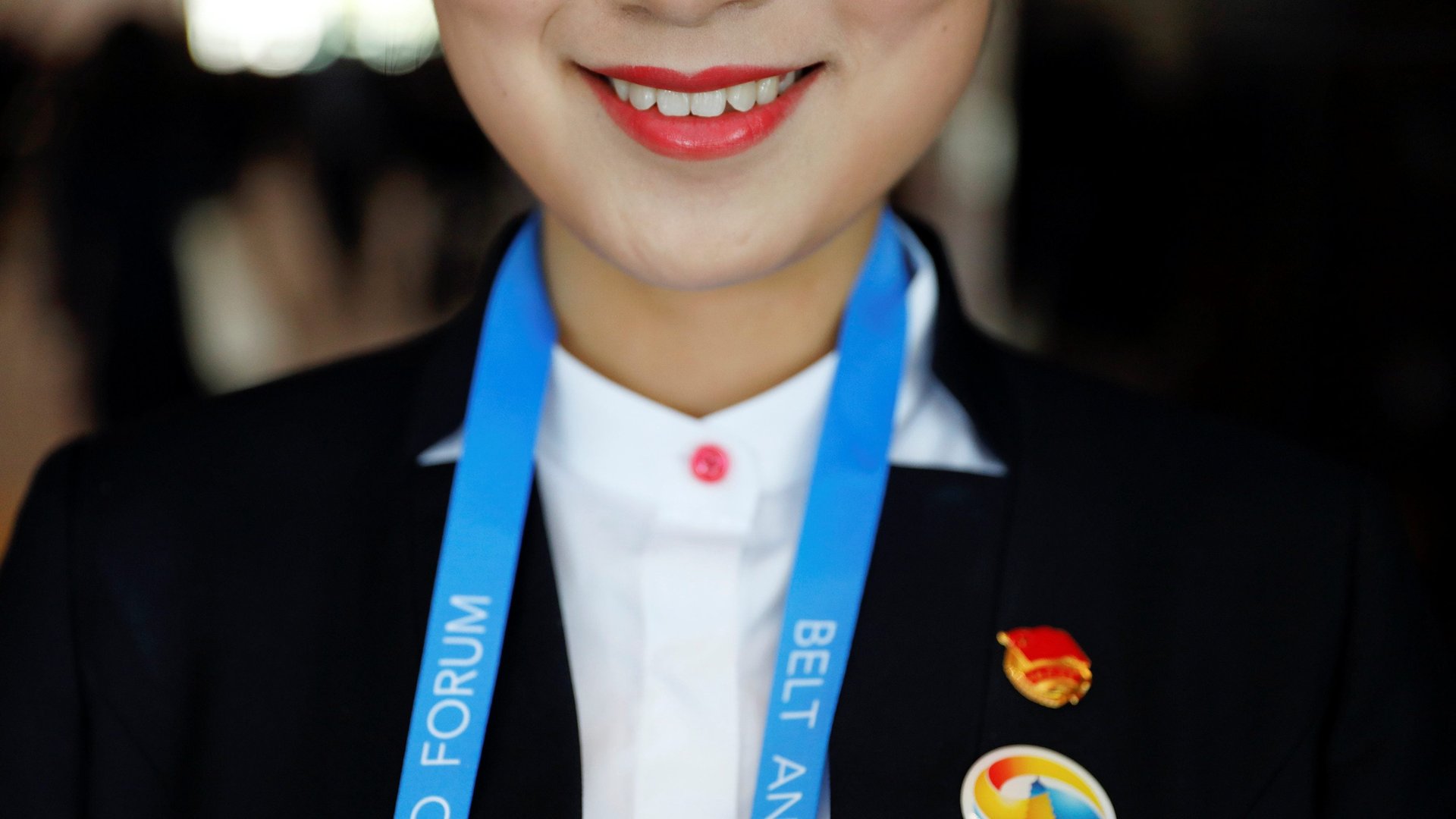What do Chinese authorities want? A little “positive energy,” please
China’s internet is never short of creative language. Often memes taking over its social media subtly ridicule government misconduct and end up getting censored (paywall)—once authorities catch on, that is. But in rare instances, the Communist Party turns a grassroots catchphrase into one of its own propaganda terms. A case in point is “positive energy,” or zheng neng liang (正能量).


China’s internet is never short of creative language. Often memes taking over its social media subtly ridicule government misconduct and end up getting censored (paywall)—once authorities catch on, that is. But in rare instances, the Communist Party turns a grassroots catchphrase into one of its own propaganda terms. A case in point is “positive energy,” or zheng neng liang (正能量).
The phrase wasn’t originally one of those directed against the government. Instead, it was associated with an optimistic attitude, an inspiring manner, and a healthy lifestyle when it took off on China’s Twitter-like Weibo service about five years ago. For example, if a film warmed your heart, you would say it’s “full of positive energy.”
But then the government started using it, too, to describe nearly anything in line with its policies. So “positive energy” could be about love of the Communist Party, or tighter controls of the internet. (Conversely, “negative energy” is now used for any criticism of the government.)
Chinese president Xi Jinping has taken the lead on the using “positive energy.” In one of the first uses of the term in China’s political discourse, he called for more positive energy in the China-US relationship during a 2012 meeting with former US president Jimmy Carter. And when he toured state-controlled news outlets last year, he said they should all (link in Chinese) “transmit positive energy”—or deliver the government’s propaganda.
To measure a term’s importance in the official discourse, China watchers track the number of times it’s used in Chinese newspapers, especially in the top mouthpiece People’s Daily.
After searching for the phrase “transmitting positive energy to society” in a database of hundreds of Chinese papers, David Bandurski, a researcher with the China Media Project at the University of Hong Kong, found that it’s become crucial language since Xi took office in late 2012. Bandurski noted the full phrase is often used for state control in media, art, and other aspects of Chinese culture.
Usage in the People’s Daily has declined from a peak in 2014, but in recent years the phrase has found new life on the international stage. Now it’s usually used alongside ”the world.” For example, on the sidelines of China’s recent “Silk Road” summit, Xi told his Russian counterpart Vladimir Putin that their nations should cooperate on bringing positive energy to the world for peace and stability. When the US earlier this year sent warships through the South China Sea—which China largely claims as its own, ignoring legal norms—Beijing urged it to show a little positive energy.
So far this year, “positive energy” has appeared in 111 People’s Daily articles. Nearly 60 of those have “world” in them (and 83 have “Xi Jinping”).
The trend shows the phrase has gone from domestic to international affairs. That’s largely in line with Xi’s increasingly proactive approach to international affairs.